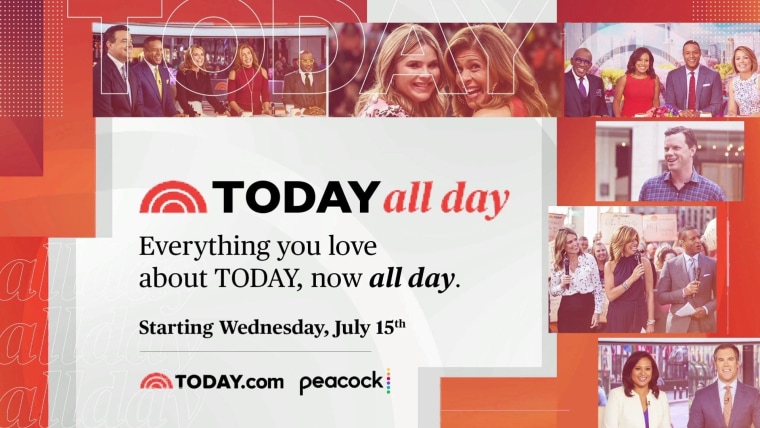When NBCUniversal launches its new streaming service Peacock on Wednesday, it will be the last of the major media companies to enter the so-called “streaming wars.” It will also provide viewers something familiar and somewhat counterintuitive: a broadcast television experience, but offered directly to consumers.
At a time when Disney, AT&T’s WarnerMedia and others have launched subscription-based on-demand services to compete or at least catch up with Netflix, NBC is launching the free, ad-supported service that will offer on-demand programming as well as TV-like, always-on channels built around everything from news and sports to late-night and reality TV.
NBC’s Peacock service isn’t so much about imitating Netflix, several media and entertainment executives said, but about positioning the company’s existing, ad-supported business for a future in which traditional television may not exist.
“Peacock is the manifestation of the future of NBC in some respects, because it takes a page from the broadcast model,” Matt Strauss, the chairman of Peacock and NBCUniversal Digital Enterprises, said in an interview. “It’s like broadcast 2.0.”
NBCUniversal is the parent company of both Peacock and NBC News.
Peacock, which has been available since April to roughly 15 million Comcast subscribers, will launch nationally Wednesday at three tiers.
Peacock will be available for free with ads and feature 13,000 hours of content. Peacock Premium, which has 20,000 hours of content, will be available for $4.99 (or free for Comcast and Cox subscribers). An ad-free Peacock Premium will also be available for $10 a month. The service will stream via an app that will be available on most platforms including Apple’s App Store and Google Play, though NBCUniversal has yet to strike a deal for it to show up on Roku or Amazon devices.
In addition to lots of classic shows (“30 Rock,” “Law & Order”), newer shows (“Yellowstone”), movies (“Jurassic Park,” “Shrek”) and a handful of new originals, Peacock will also feature live news, sports, late-night shows and other programs. And, in an analog move, it will feature more than 20 channels built around certain shows, themes and genres.
“We made a calculated decision to launch a service that isn’t just on demand,” Strauss said. “We also knew that streaming in many ways lacked certain elements that made TV enjoyable.”
“Sometimes, you just want to watch TV,” he said.
Peacock’s channels will include “TODAY All Day,” a 24-hour complement to NBC’s morning show that features repackaged “TODAY” segments along with new originals starring the show’s co-hosts.
Similar channels will exist for “Saturday Night Live,” NBC’s various news brands and popular reality shows like “Keeping Up With the Kardashians.” Peacock ultimately expects to have more than 70 such channels.
Peacock’s great challenge will be to gain traction in a heavily crowded marketplace where consumers already have a litany of streaming services to choose from, including Netflix, Amazon Prime, Apple TV+, the Disney+ suite (Disney+, ESPN+ and Hulu) and WarnerMedia’s HBO Max.
Peacock’s advantage is that it’s free, which may be particularly attractive to consumers in an economy ravaged by the coronavirus pandemic. It’s a less crowded space, with ViacomCBS’ Pluto TV the only other major platform offering a similar ad-free, TV-like experience.
“We’re zigging where others are zagging,” Strauss said. “We’re not just focusing on another subscription service, but providing a much more affordable option in the market, which we believe is incredibly relevant at this moment in time.”
At the same time, relying on ad revenue means that Peacock will be judged by different metrics. Whereas Netflix and Amazon measure success by their ability to grow and retain subscribers, Peacock’s advertisers will measure NBC’s success by the amount of time consumers spend on the content.
Strauss said the goal is to get “30 to 35 million monthly active accounts … within three to four years” but it could prove more challenging to get those subscribers to abandon familiar viewing habits for yet another streaming service.
When NBCUniversal hatched the rollout plan for Peacock, the idea was to peg the launch to the Tokyo 2020 Olympics and use the games to drive awareness and demand for its fledgling service. The fact that the coronavirus pandemic delayed the Olympics until next year forced NBC to rethink the rollout.
One way Peacock will try to generate buzz is through its original programming, which includes new shows such as “Brave New World,” based on Aldous Huxley’s science fiction novel, and “Intelligence,” a comedy starring David Schwimmer.
Finally, in lieu of the Olympics, Peacock has also tried to generate interest from sports fans by leveraging its other rights. Last week, NBC Sports announced that Peacock would stream over 175 Premier League soccer matches next season. On launch day, Peacock will be the only place to watch four Premier League games.













